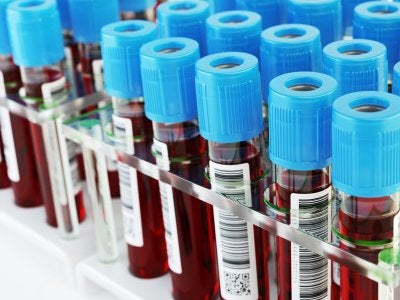-
FAQs About Documenting Medical Malpractice
As a patient, you may be wondering if there is anything you can do to help ensure that your diagnoses are accurate. In fact, there are several steps you can take to fully document the treatment you are receiving and ensure that you have information that you can refer back to later. Here are the answers to some questions you might have:
 How many of my medical records should I keep? The simplest answer is “All of them.” If you are being treated for an ongoing health issue, you should keep any and all documents you receive from any medical professionals who treat you, along with other records of your interaction such as receipts. It’s generally advised that you hold on to medical records for at least 10 years.
How many of my medical records should I keep? The simplest answer is “All of them.” If you are being treated for an ongoing health issue, you should keep any and all documents you receive from any medical professionals who treat you, along with other records of your interaction such as receipts. It’s generally advised that you hold on to medical records for at least 10 years. How can I keep track of my treatment? One of the best ways to ensure that you have a comprehensive record of the state of your health as well as your medical treatment is to keep a health journal. In the journal, make a note of every appointment you have and write down as much as you can remember after each visit, particularly any instructions you get from your practitioner and any information about possible outcomes.
How can I tell if my diagnosis is correct? There are a number of strategies you can adopt in order to increase the likelihood of an accurate diagnosis. Bring a friend or a loved one with you during your appointment for support and to remind you of any questions you want to ask. If the practitioner who diagnoses you seems vague or unclear, get a second opinion. Having a clear record of your treatment and symptom history can also be useful to refresh your memory when you’re talking with your healthcare provider.
Are you in need of a medical malpractice attorney in Long Island, New York? Pegalis & Erickson, LLC is committed to providing patients and their families with the capable legal services they deserve. If you believe that you or a loved one has been affected by medical malpractice, please contact us today at (516) 684-2900 for a free consultation.
-
Is There a Cure for Erb’s Palsy?
 Erb’s palsy is a condition that affects approximately one in every 1,000 newborns. It involves nerve damage to the brachial plexus, the network of nerves in the upper arm. Infants who have Erb’s palsy may demonstrate a number of symptoms, including difficulty moving their hands, loss of feeling in their arms, or simply weakness throughout the arm. In some cases, the condition will resolve itself on its own, but it may take up to two years, and recovery may not be complete. Simple physical therapy exercises can be done to help the healing process along. In some cases, surgery may be recommended.
Erb’s palsy is a condition that affects approximately one in every 1,000 newborns. It involves nerve damage to the brachial plexus, the network of nerves in the upper arm. Infants who have Erb’s palsy may demonstrate a number of symptoms, including difficulty moving their hands, loss of feeling in their arms, or simply weakness throughout the arm. In some cases, the condition will resolve itself on its own, but it may take up to two years, and recovery may not be complete. Simple physical therapy exercises can be done to help the healing process along. In some cases, surgery may be recommended. At Pegalis & Erickson, LLC, we understand that medical malpractice is a difficult subject, especially when it affects an infant. If you are seeking legal guidance for a case of medical malpractice in Long Island, New York, call our legal team at (516) 684-2900 to schedule a consultation.
-
Surprising Facts About Missed and Delayed Diagnoses
When most people go to the doctor, they bring with them the assumption that they will find out if there is anything wrong with their health. Unfortunately, this isn’t always the case. It is nowhere near as rare as you might assume for medical practitioners to fail to diagnose a serious health problem—or to diagnose it too late. Here are some facts that might surprise you:
 Diagnostic errors are extremely common. According to a recent study by the Institute of Health, about 5 percent of all Americans who visit a medical professional in the course of a year will receive a faulty diagnosis. This adds up to about 12 million people. The study also observed that the number of diagnostic errors appears to go up over time, as medical treatments increase in complexity.
Diagnostic errors are extremely common. According to a recent study by the Institute of Health, about 5 percent of all Americans who visit a medical professional in the course of a year will receive a faulty diagnosis. This adds up to about 12 million people. The study also observed that the number of diagnostic errors appears to go up over time, as medical treatments increase in complexity. Almost everyone will receive at least one wrong diagnosis. While 5 percent may not sound like an enormous amount, the number of people who are wrongly diagnosed multiplies with each passing year. The Institute of Health study found that most people living in the U.S. will experience at least one late—or flat-out wrong—diagnosis at some point in their lives.
Diagnostic errors can be hard to identify. It’s easy to assume that you’ll know when you’ve been wrongly diagnosed—but that isn’t necessarily true. Many people do not discover for years that they have gotten the wrong diagnosis. Diagnosing a patient is a challenging and multifaceted process, and there are many points at which the diagnosis can go astray. In many cases, the issue is lack of proper communication between medical professionals and their patients.
If your life—or the life of a loved one—has been disrupted by a delayed diagnosis, you may have a medical malpractice claim. Talk to one of the attorneys at Pegalis & Erickson, LLC, for legal guidance that will help you protect your rights. You can set up a free consultation at our office in Long Island, New York, by calling us at (516) 684-2900.
-
Spotlight on Infectious Disease Errors
 If you have an infectious disease, being misdiagnosed—or diagnosed too late—can have serious consequences. If an infectious disease isn’t treated and worsens, the changes in your life may be irreversible. That’s why it’s important to be a proactive patient and take the initiative to help ensure that your diagnosis is accurate. Be open and communicative with the healthcare providers you interact with, and don’t hesitate to contact them if your health status changes. If you aren’t satisfied with your current doctor, find a new one. Keep your own medical records, including a list of all your appointments, a record of your symptoms and when you experienced them, and a list of all your medications. Having that information at your fingertips will also be useful for any medical practitioner who is treating you, and it can help to increase the chances of positive patient outcomes.
If you have an infectious disease, being misdiagnosed—or diagnosed too late—can have serious consequences. If an infectious disease isn’t treated and worsens, the changes in your life may be irreversible. That’s why it’s important to be a proactive patient and take the initiative to help ensure that your diagnosis is accurate. Be open and communicative with the healthcare providers you interact with, and don’t hesitate to contact them if your health status changes. If you aren’t satisfied with your current doctor, find a new one. Keep your own medical records, including a list of all your appointments, a record of your symptoms and when you experienced them, and a list of all your medications. Having that information at your fingertips will also be useful for any medical practitioner who is treating you, and it can help to increase the chances of positive patient outcomes. If you believe you have been misdiagnosed, it’s time to contact Pegalis & Erickson, LLC. You can reach our office in Long Island, New York by calling (516) 684-2900.
Many people do not discover for years that they have gotten the wrong diagnosis. Diagnosing a patient is a challenging and multifaceted process, and there are many points at which the diagnosis can go astray. In many cases, the issue is lack of proper communication between medical professionals and their patients.
If your life—or the life of a loved one—has been disrupted by a delayed diagnosis, you may have a medical malpractice claim. Talk to one of the attorneys at Pegalis & Erickson, LLC, for legal guidance that will help you protect your rights. You can set up a free consultation at our office in Long Island, New York, by calling us at (516) 684-2900.
Recent Posts
Popular Posts
- Annamarie Bondi-Stoddard Named One of The Top Attorneys by New York Metro Super Lawyers!
- A Look at Common Orthopedic Birth Injuries
- Steve Erickson named only Lawyer of the Year on Long Island, NY for Personal Injury Litigation
- Reducing the Risk of Medical Malpractice
- How Improper Prenatal Care Can Lead to Birth Injuries
categories
- Uncategorized
- Infographic
- Patient Safety
- Patient Health
- Stillbirth
- Birth Injuries
- Medical Malpractice
- Medical Negligence
- Event
- Erb's Palsy
- Injury
- ER
- Video
- Cancer Misdiagnosis
- Medication Errors
- Cerebral Palsy
- Medical Negligence Lawyer
- Anesthesia Injuries
- Brachial Plexus
- Prostate Cancer
- About Us
- Men's Health
- Skin Cancer
- Breast Cancer
- Misdiagnosis
